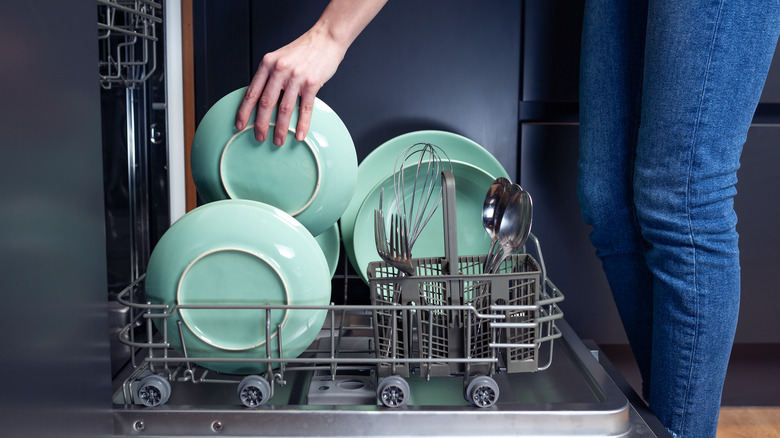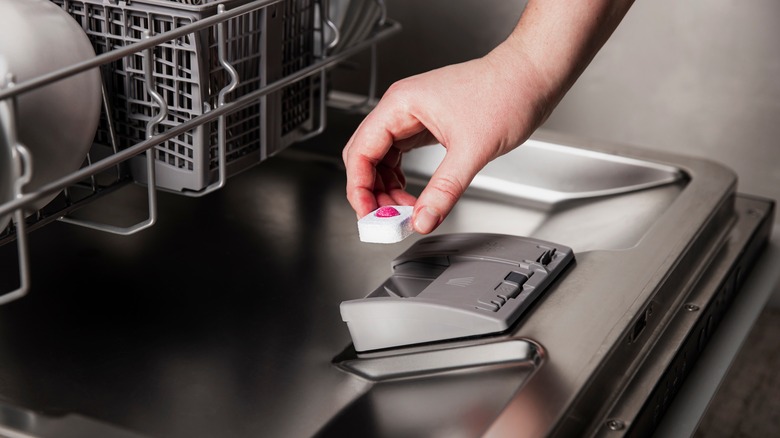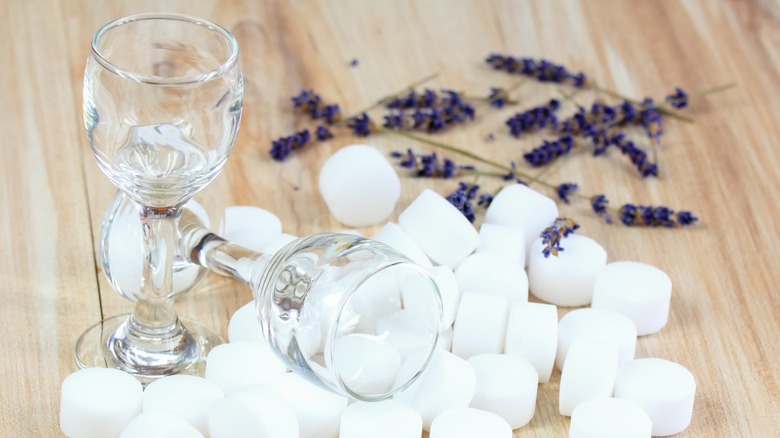Why Your Dishes Feel Greasy Coming Out Of The Dishwasher
It's no surprise that dishwashers save time, energy, water, and sanity. If you have a busy schedule, this appliance feels like the best invention since the washing machine. But what happens when you start unloading and feel this slippery film on your plates or glasses? Luckily, you don't need to rush out to buy a new appliance or call a repair specialist immediately. Looking at the factors contributing to residual grease on your dishes makes troubleshooting far easier. You could be dealing with the water's temperature or quality, per My Delicious Sweets, or your dish soap or powder. It might even be a combination of water and soap in some situations.
Regardless of the cause, we have some simple fixes to help get your dishes spotless and free of grease. Better yet, once you try these solutions, it won't take long to figure out which one resolves the problem, and for the most part, you already have the necessary tools to get your dish-washing cycle back on track.
Possible causes behind the greasy film
To fix this problem, you must look at the possible culprits behind the greasy residue. Unfortunately, one of them relates to your location's water quality. If you live in an area where the water is quite hard, dishwasher soap doesn't work as thoroughly. You might need to add more detergent to get your dishes completely grease free, or you may feel tempted to pre-rinse more than usual. Plus, the mineral buildup can affect your appliance's longevity, according to Consumer Reports. These start to break down over time (less time than otherwise), and a film can form on the dishwasher's heating element, which also impacts efficiency.
Another likely cause involves the quality of your detergent. For one thing, as noted in My Delicious Sweets, the single-use pods that contain more than one type of solvent usually don't clean as effectively as other detergents. Additionally, you might need to look at the quantity of dish detergent you're using, ensuring that you're adding the right amount to the dispenser.
Grease-cutting solutions
Fortunately, there are answers to the grease-cutting issue that doesn't involve buying a water softener or a new dishwasher. You can try running a cycle after adding white vinegar to the detergent dispenser when dealing with hard water. The vinegar should clear out the mineral deposits, allowing your dishwasher to run more effectively, per Consumer Reports. Also, you can purchase a salt product made explicitly for dishwashers, as mentioned by My Delicious Sweets. This product softens up the water, thus enabling the detergent to do its job. All you have to do is locate the softener dispenser in your dishwasher and add the salt before running a cycle.
Another tip of GE Appliances is to turn on the kitchen faucet to run the hot water for a short while before turning on the dishwasher. This ensures that the water from your dishwasher is at its hottest at the beginning of the cycle. It also helps enhance the appliance's efficiency and the detergent's performance. Of course, you might also try a different brand of detergent.


